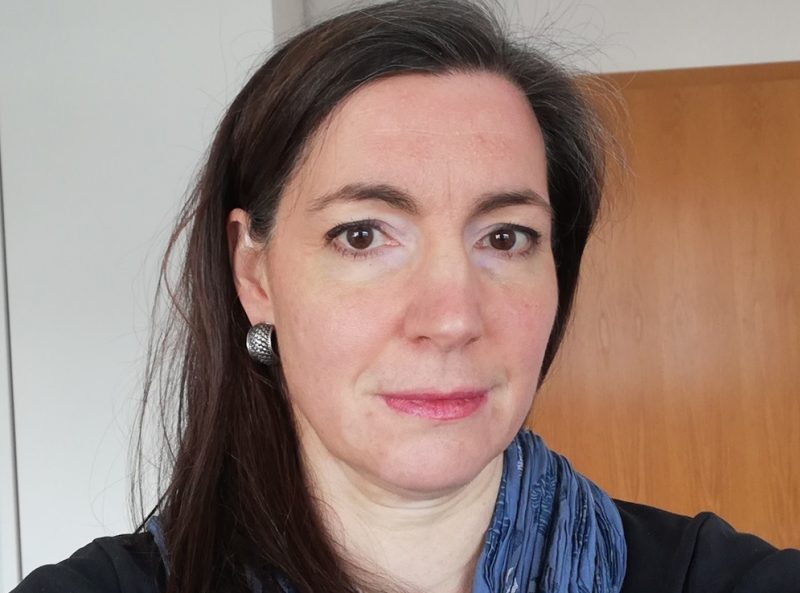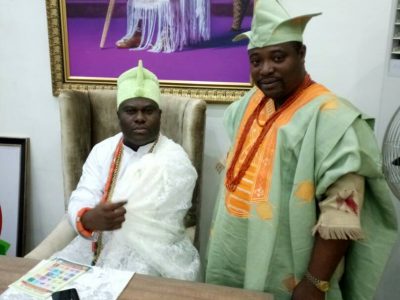科学分野における女性の役割を継続的に取材する記事の一環として、グローバル・ボイスはミュンヘン大学神経生物学科、独立研究員キャロライン・ガイスラー博士にインタビューを行った。ガイスラー博士は数理神経科学の分野で、リズミカルなニューロン活動を生じさせる機能に焦点を当てた研究を行っている。
最初は物理に興味を持ったことから科学の分野に入り、その後、理論的な研究から、より人間や生命に関わりのある研究へと進路を変更した。現在、大学の認知・神経可塑性研究室での研究と博士・修士課程の学生の指導の両方に取り組んでいる。
グローバル・ボイス(以下GV):何がきっかけで物理学への興味を持ち、科学者になろうと思ったのでしょうか?
Caroline Geisler (CG): Well, I always had a mathematical mind and was very good in maths, which in high school became especially clear. I was interested in space, small particles, computers and literally wanted to become a rocket scientist. I studied at a girls’ school and had a group of friends with the same interests, such as memorizing stars in the sky, rather than going shopping for clothes. Being surrounded by friends with the same interests, of course, strengthened my passion for science.
キャロライン・ガイスラー(以下CG):そうですね。私はいつも数学的な思考を持ち、数学は大変得意でした。高校時代は特にそれが明確になりました。私は宇宙や小さな粒子、コンピュータに興味を持っていて、文字通りロケット科学者になりたかったのです。私は女子校で学んでいて、服を買いにショッピングに行くより空の星を覚えるといった同じ興味を持つ友だちのグループにいました。そのような友人たちに囲まれていたことから、私の科学への情熱は強くなりました。
GV:当時は、科学、特に物理学は男性の領域と考えられていましたから、その分野でキャリアを積むのは女性にとってさらに難しいことではありませんでしたか?
CG: In this sense it was an advantage to study at a girls’ school, because there, the gender division simply did not happen. I sometimes ask myself whether I would have pursued science with the same enthusiasm if I had studied in a mixed school. And I still don’t have a definitive answer. Several studies have actually shown that girls from girls’ schools are more likely to enter fields that are male-dominated, precisely because there is no gender division, which to some extent creates certain mental barriers.
In primary school, where I studied in a mixed group, the teacher in science classes always gave the experiments to the boys, but not to me, although I wanted to do the experiments too and felt it extremely unfair. So the fact that I studied in such a school could have played a role in making my choice.
And I was lucky to have enormously supportive teachers who recognized my strong points and believed in me, thus encouraging me to dive fully and seriously into the world of science. I remember, I had a very nice maths teacher, who at the time when I struggled with English, came to me and cheered me up by saying: “I do understand you very well, cause I also always had problems with English. But you’re good in maths and that’s enough for life.” His support was very important for me and helped me not to get frustrated.?
CG:そういう意味では女子校で学んだことは有利でした。学校で性差を意識することはそもそもないからです。時々もし共学校で学んでいたら同じ情熱で科学を追及していただろうかと自問します。でも、まだ明確な答えは出せていません。しかし、女子校出身者は男性優位の分野に行く傾向が高い、という研究結果も実際に出ています。というのも、女子高には男女の違いによって気持ちの上での壁をつくることがないからです。
小学校のとき、私は男女混合のクラスで学びましたが、科学の授業で先生はいつも男子に実験をやらせ、私にはさせませんでした。私も実験がやりたかったので、とても不公平だと感じました。ですから、私はそのような学校で学んだことが私の選択に影響を与えたと思います。
幸運なことに、私の強みを理解し、信じてくれて、また私が本格的に科学の世界に飛び込むのを支えてくれる多くの教師に恵まれました。ある素晴らしい数学の教師は、英語で苦戦していた私のところに来て、「私はあなたのことがよくわかります。私も英語が苦手でしたから。でもあなたは数学が得意だからそれで十分ですよ」と言って励ましてくれました。その先生のおかげで挫折しないですみました。
GV:学部生のころはどうでしたか? 物理学専攻の女性の比率はどのくらいで、女子学生に対して何か違いはありましたか?
CG: Actually no, not at all. Although there were only about 10 percent women in the faculty and in some classes I was the only woman, it only motivated me to perform better. Because being almost the only girl in a group doesn’t give you a chance to dissolve in a crowd, to disappear from the view of a teacher. Standing out makes you always think twice before saying anything out loud, because if it’s something silly then you know that everybody will remember who said it. That ‘no chance to hide’ position bothered me a little bit and made me feel uncomfortable sometimes, but those concerns were more from my own mind, not caused by any bad intentions or biased attitudes from teachers.
Very occasionally some slight and unconscious gender biases took place. For instance… one older professor in a lecture on thermodynamics gave an example of baking cakes and turned to me, saying: “Indeed, you should know this.” And I said: “Why? Sorry, but I don’t.” Because I actually had no idea how to bake cakes at that time.
On the other hand, I had a female physics professor who was very kind and caring and especially helpful and supportive to me. Partly I explain her goodwill by the fact that I was the only girl in the group and she felt therefore some special connection with me and the inclination to help me. Her example showed me that I could also be successful in science, and I definitely benefited from her support.?
CG:女子だからと言って、特別扱いされたことは全然ありません。物理学専攻の女子は10%ほどで、クラスによっては、女子は私だけということもありましたが、それはかえって頑張ろうという動機付けになったにすぎません。というのも、教室内で唯一の女子ということは、学生の中に紛れて、教師の視野から消えるというわけにはいきません。目立つから、いつも発言する前によく考えるようになります。なぜならそのとき何かおかしなことを言ったら、みんな発言したのは誰かを覚えていますから。「隠れることのできない」立場は少し煩わしいこともあり、時には居心地の悪さを感じることもありましたが、こういった気がかりは私自身の心の持ちようから来るもので、教師の悪意や偏見のある態度によるものではありません。
本当に稀ですが無意識な性別への偏見もあります。たとえば一人の年配の先生は、熱力学の講義のときケーキを焼く例をあげ「あなたはもちろん知っていますよね」と言いました。私は「どうしてですか? すみません、私は知りません」と答えました。実際そのとき私はケーキの焼き方を知りませんでした。
一方ある女性の物理学の教授はとても親切で思いやりがあり、特別に私に目をかけてくれました。私は教室内でただ一人の女子学生だったので、何か親近感があって助けてくれたのではないかと思います。彼女を見ていて、私も科学分野で成功できるとわかりましたし、彼女の力添えを有難く思っています。
GV:一般的に物理学の世界で女性であることについてどのように感じますか? もしあるとしたら、科学の分野での女性の役割はなんでしょうか?
CG: I feel that, in physics, most of the time you’re either good or you aren’t, and others will certainly know that. In exact sciences,? such as physics… it wouldn’t help you just to tell everybody that you’re great. If you don’t publish good papers and do good work, no one will recognize you, so it makes no sense to pretend. This means that one is judged first on one’s work and last on gender.
Both at university in Germany and in the United States, and especially in the US, gender was never an issue, in my opinion, and I was always treated fairly. In fact, in the US I even heard about some programs that specifically supported women, which meant that if you were really good at what you were doing and you could prove it by your work, there could even be an advantage to being a woman in a certain field of research.
The dark side of this seeming tolerance though, is that sometimes people or organizations… prefer simply not to deal with female candidates or potential employees to avoid any gender-related troubles or suspicion of discrimination. That’s where this idea of gender tolerance and supporting women can actually backfire and the special status of being a female can play against you.?
CG:物理学において、たいていの場合、優秀であるかないかが重要で、他の人にも確実にそれはわかると思います。物理学のような精密な科学で、自分は優れているとみんなに言っても意味はありません。良い論文を発表したり、良い仕事をしなくては誰も認めてくれないので、自分を偽っても意味がありません。つまり、まず仕事で評価されるので、性別で判断されることはほとんどないと思います。
ドイツやアメリカの大学では、特にアメリカでは性別は全く問題になりませんでした。私が思うには、いつも正当に扱われていました。実際にアメリカでは、特別に女性を支援するプログラムについて聞いたこともあります。それは仕事が本当に優秀であり、それを業績で証明できるのであれば、という意味ですが、特定の研究分野では、女性であることが有利に働くこともあります。
寛容さの裏側には、性別に関連したトラブルや性差別と疑われることを避けようとする考えが先立ち、将来性のある女性が応募してきても、単に関わりたくないと考える個人や組織もあります。性への寛容さや女性支援の考えが裏目に出て、女性であるという立場が逆風となることもあるのです。
GV:あなたのキャリアでもっとも大変で同時にやりがいのあった時期はいつですか?
CG: I guess that would be the time right after my first child was born, while I was doing my postdoc in the US in the lab of Professor Buzsaki. That was a really life-changing time. I had to reconsider my schedule, adjust my working life to new circumstances and incorporate a number of new responsibilities, along with the existing ones, into the same 24 hours.
Especially in the case of researchers, most of them rely on the opportunity to immerse themselves completely in their subject, and time doesn’t matter for them anymore ? if you want to figure something out you can stay up till 3am and then you get up whenever you get up and go back to your research. And then the baby appears and such a regime does not work for you anymore. That was for me the hardest period of transition to a new lifestyle, though, of course, it was full of rewarding and happy moments. My husband (Anton Sirota, also a researcher) and my colleagues in the lab were very supportive and understanding.
The maternity leave in the US is quite short and a few months after giving birth I got back to work, however, of course, my career slowed down from that moment. This moment is pivotal in terms of how much you can capitalize on whatever you achieved before, and how well your research is lined up and organized, so that you can pick up again without thinking too much about it.
Now, since we have three kids, I work part-time in order to be able to take care of children, although my husband shares many of the family-related responsibilities. Thankfully, in Germany, the part-time option for working mothers is a common thing. This flexibility allows you to stay in science and continue doing what you’re passionate about. However, among conservative people, you still encounter some judgment, and the assumption that you are indifferent to your kids and prioritizing work over family.
Also, I regard science as a highly creative process, similar to the arts, and therefore it’s very important to be fully emerged in your research, to be flexible and to dedicate most of your time and mental energy to your project. One needs to get into the right mood and invoke creativity, which is hardly achievable when one always has to check your watch to not be missing the time to pick up the kids from school or kindergarten. Now, although I still do my research, I am also teaching at the Graduate School of Systematic Neuroscience, which I really enjoy and find highly rewarding.?
CG:最初の子が生まれた直後でしょうか。その頃、アメリカのバズサキ博士の研究室で博士課程を終えた研究者でした。本当に人生の転機でした。私は自分のスケジュールを再考し、ワーキング・ライフを新しい環境に合わせ、同じ24時間で、すでにあるものに加え、新たな多くの責任を組み入れなくてはならなかったのです。
研究者の場合、特に自分の研究テーマに没頭できるチャンスをつかむことが大切です。何時であろうと問題ではないので、何かを導き出そうとするなら午前3時まで仕事をしてもいいし、また目が覚めればいつでも研究を再開するでしょう。しかし子どもが生まれると、そのような研究スタイルは通用しなくなります。私にとって、新しいライフスタイルに変えるという最も苦労した時期でしたが、もちろんとても報われる幸せな時間でもありました。私の夫(同じく研究者であるアントン・シロタ)や研究室の同僚はとても協力的で理解を示してくれました。
アメリカの産休は短く、出産後数か月で仕事に復帰しましたが、私のキャリアはその時点からスローダウンしました。しかし、これもひとつの時機ととらえ、今までの研究成果をどれだけ多く利用できるか、またどのように組織立てて整理するかを考えました。そうしておくと、有効なデータをすぐ取り出すことができるからです。
今私たち夫婦には3人の子どもがいます。夫とは多くの家事を分担していますが、私は子どもの世話ができるようパートタイムで働いています。有難いことに、ドイツでは働く母親がパートタイムの仕事を選ぶのはごく普通のことです。柔軟に対応できるので、科学の分野に留まり、情熱をそそぐテーマを追い続けることができます。でも、保守的な人々から非難されて、子どもにかまわず家族より仕事を優先していると言われることもあります。
また、科学はとても創造的なプロセスであり、芸術と似ていると思います。ですから、科学者は研究に没頭し、柔軟性を持ち、多くの時間と精神的なエネルギーを研究に費やすことが重要です。気持ちを安定させ創造性を発揮することも必要で、学校や幼稚園に子どもを迎えに行くことを忘れないよう常に時計を気にしていては、落ち着いて研究できる環境を維持するのは難しいでしょう。今私は研究をやりながら、システム神経科学の大学院で教えていますが、とても楽しくやりがいを感じています。
GV:女性研究者にアドバイスするとしたら、何を伝えたいですか?
CG: The absolute most important thing that everybody should always consider is doing what you really love, because only then will you have the endurance and discipline to get through the hardships and difficult times. If there is something that you really love to do, you should pursue it. And even if you’re thinking that you will never be able to earn money or find a job, if you’re really good at what you do and do it wholeheartedly, you will be more likely to find a job and overcome any challenges and difficulties that you encounter. Just be open, try to see the opportunities and be courageous enough to take them.?
CG:いつでも最も大切なのは、本当に好きなことをすることです。好きなことであれば、厳しい試練にあっても、自制心をもって耐えてゆくことができるからです。もし是非やってみたいことがあるなら、それを追及するべきです。たとえ収入が得られなくても、また仕事がなくても、それが好きで心を込めて取り組んでいれば、仕事が見つかるチャンスもやってくるでしょうし、途中で出会うどんな課題や難局も乗り越えることができるでしょう。心を開き、機会を見つけるよう心掛け、勇気を持ってそれをつかみ取るのです。
科学界で活躍する女性を取り上げた特集ページも合わせてご覧ください。








